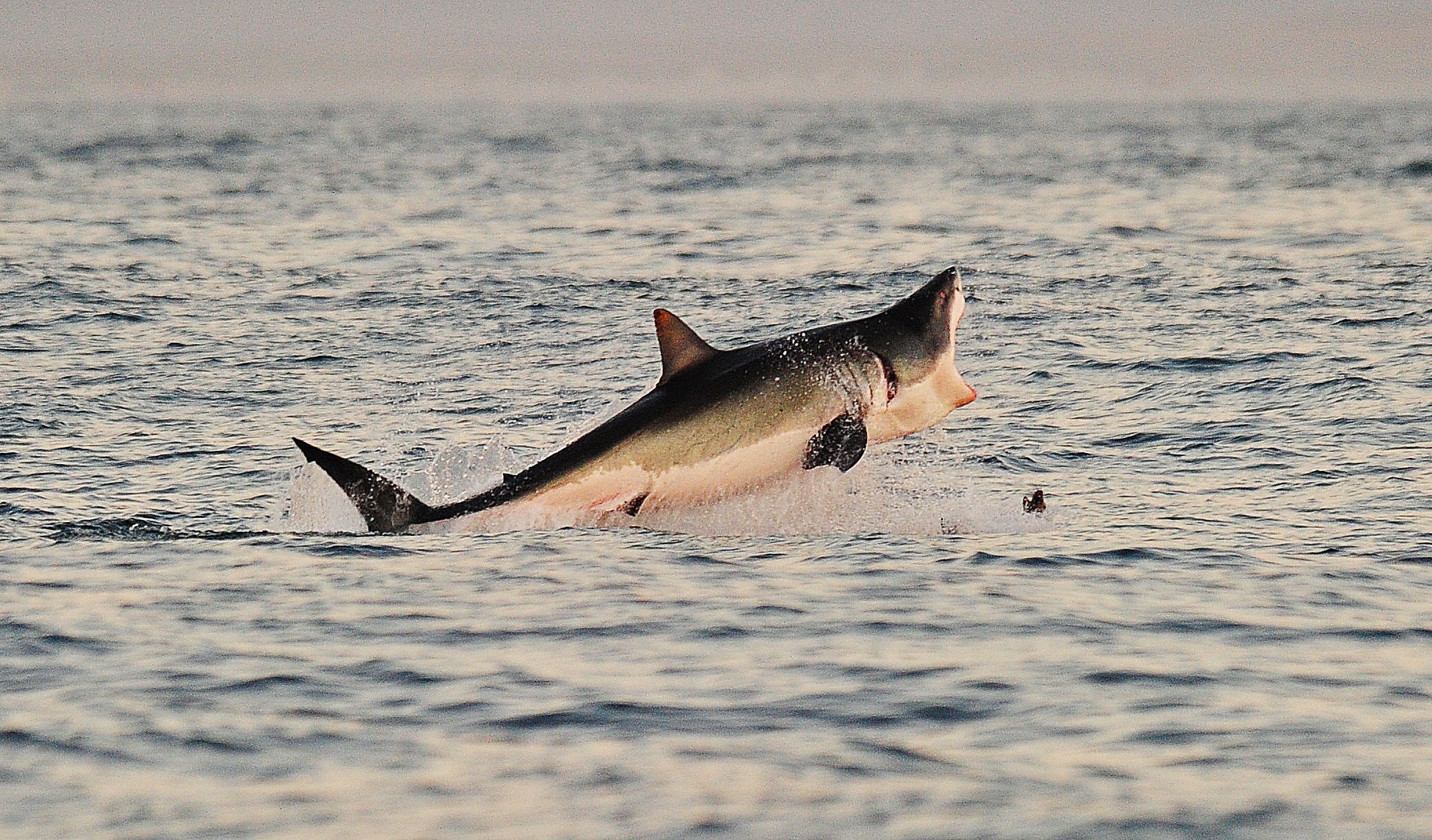
Hunted for many years, the great white shark could finally be back in Canadian waters, thanks in part to conservation efforts.
These majestic animals are being closely monitored by international teams of scientists who are attempting to document their apparent resurgence in the Northwest Atlantic.
However, the information we have on these animals is rather rare, as it is very difficult to track them.
That’s why Heather Bowlby of the federal Canadian Atlantic Shark Research Laboratory and two other scientists will be heading to sea in early August to try and tag new white sharks using satellite technology.
The team will try to build on the success of its previous mission.
Last year, they were able to mark the “first great white shark in in Atlantic Canadian waters” off the coast of Nova Scotia, nicknamed “North” says Bowlby.
Here is a video of the operation:
They work in partnership with the Massachusetts Marine Fisheries Division and the Atlantic White Shark Conservancy, which successfully tagged six more animals in 2018.
The American group is also preparing a population estimate for its region, where there is evidence of what scientists call a “hot spot” of sharks at various stages of their lives enjoying abundant seals off Cape Cod.
But how difficult can it be to tag one of these elusive creatures? It’s a question we asked Heather Bowlby:
Monitor great white sharks recovery
In the 1970s, 60 to 70 percent of the white shark population disappeared in Canadian waters due to “extensive fishing,” says Bowlby.
In an effort to protect the marine world’s greatest — and most mysterious — predators, the Canadian government has put in place new legislation.
But biologists must now be able to track animals to see if these efforts have been successful, as Bowlby explains:
The Canadian Atlantic Shark Research Laboratory is not alone in tracking great whites in Canadian waters. Last fall, a non-profit group, the Ocearch, already captured and tagged seven great whites off Lunenburg and Halifax.
They gave names to the different sharks such as “Hal” or “Jane” and thousands of people are following them on the organization’s global online shark tracker.
The organization recently applied for a permit to conduct a return visit off Cape Breton from September 13 to October 4.
A come back would be good news
When we asked Heather Bowlby if a return of the great white shark would be good news, she replied with great enthusiasm:
“I think so, absolutely! Typically, when a top predator can increase, it means that the ecosystem is healthy enough to support them.”
If the surge of great whites is verified, it could mean a lot, according to the biologist:
She went on to explain that their return to Canadian waters could be explained by the proximity of a large group of sharks as well as food:
Are great white sharks dangerous?
Many people tend to link great white sharks with Hollywood horror movies such as Jaws.
But are these cruelly effective hunters with several rows of serrated teeth really dangerous? For Bowlby they can be, but it is pretty rare to meet them:
If you see one, the biologist recommends not jumping into the water with your camera, but you can call them to report it.










